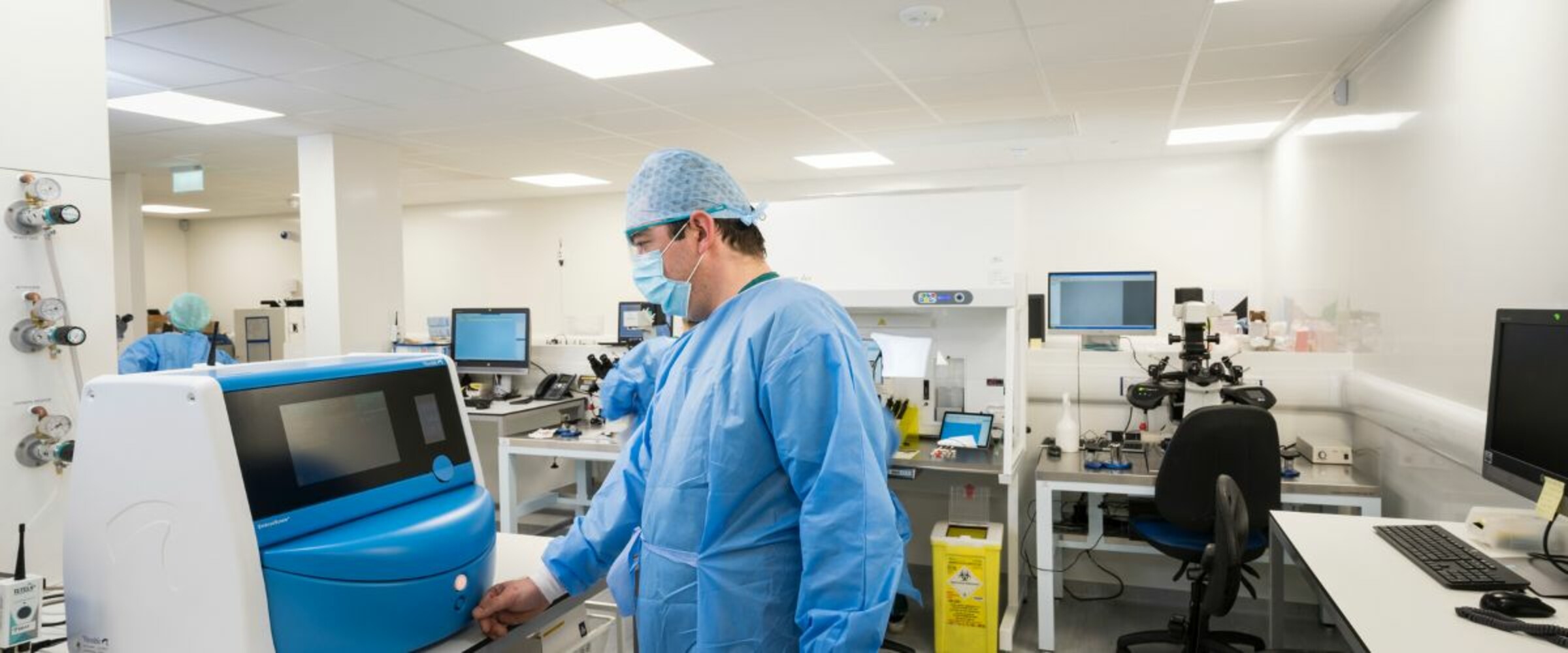
World Embryologist Day 2023
World Embryologist Day is celebrated every year to celebrate the birthday of world's first IVF baby Louise Joy Brown. Louise Joy Brown was born on July 25, 1978 through in vitro fertilisation (IVF).
We are grateful for the embryologists who pioneered fertility treatments as we know them and all the incredible embryologists we are honoured to work with in our labs. Without the dedication and passion of embryologists, what we do would not be possible. These brilliant minds work tirelessly behind the scenes, bringing hope and joy to countless couples on their journey to parenthood. We take great pride in the dedicated team of embryologists who play a pivotal role in making dreams come true.
Hear from our embryologists
Hear from Iulian Roman, IVF Laboratory Manager, Sims IVF Clonkseagh as he shares his some of his story into the world of Embryology.
What attracted you to embryology?
"As a biotechnology student I’ve been around laboratory work from the early days of my college experience. After going through different areas of life science, I fell in love with the reproductive biotechnologies, in part because of the reliance on the high standards and precision skills required in biochemistry, microbiology, cell cultures and genetics. On the other hand, the vastness of unknown in this field and the very specific limitations that the reproduction research encounters are always intriguing. Above all, even today, after more than 15 years since I started this journey, I still have that feeling of joy, knowing that I am a link in the chain of somebody’s most desired dream."
Can you provide some background about your career so far?
"I started this pathway with a couple of animal embryology research projects, investigating the effects of antioxidants supplementation of in-vitro maturation, embryo culture and cryopreservation media for endangered local breeds of swine and sheep. During this period, I accumulated the necessary skills of modern-day embryology and focused on quality aspects of the embryology routines and laboratory accreditation requirements. In 2011, I started my first clinical job in a small laboratory in Romania while also working as a curator of medical genetics scientific articles. Until 2017, I worked in three different laboratories, two of which I was part of setting up. In 2017 I moved to Ireland in the search for a “Champions League” level team, which I found at Sims IVF. I have been part of a clinic relocation project (Sims IVF Swords) and since 2021 I have managed the laboratory team of our Dublin clinic."
Can you provide an overview of your PhD research project?
"The research we currently work on is focused on the very popular subject of PGT-A – embryo morpho-kinetics corelations. Even though this topic emerged about 10 years ago, there are still questions whether the morpho-kinetic events are a direct consequence of the genetic constitution of embryos, or they might rather be a reflection of epigenetics or metabolic potential. We have developed an annotation scheme with 29 additional variables on top of the classical timing events and we have applied it retrospectively and blindly to almost one thousand embryos with known PGT-A result.
Looking from the morpho-kinetic end, I can say that no single event can be considered the Holly Grail (aka: to have the potential to discriminate between normal and abnormal embryos), but we might improve the accuracy of non-invasive genetic selection by increasing the amount of recorded morphologic details during the embryo development. From the genetics perspective, we are seeing some interesting results which show that the alteration of the morphokinetic patterns might be dependant on the types of aneuploidies each embryo barriers: monosomic aneuploidies having more impact on the length of early cleavages, while trisomy aneuploidies are more often seen in embryos with delayed blastulation."
Where do you see the future of embryology heading?
"Some might find this surprising, but I am not expecting rapid or drastic changes in the clinical embryology field… I suppose the developments are going to come at a similar pace as the last 40 years, with variations on the same techniques and slight improvements in selection. We became more aware of the biological (limited) potential of the human gametes, and my feeling is that we are getting close to 100% from what we have at this point. I would guess (or hope to) that the next big improvement will come from the use of technology for developing personalized treatment in IVF."
Happy World Embryologist Day!
To our remarkable embryologists and their colleagues worldwide, thank you for making a difference in the lives of countless families and for giving the gift of parenthood to so many. Happy World Embryologist Day!

